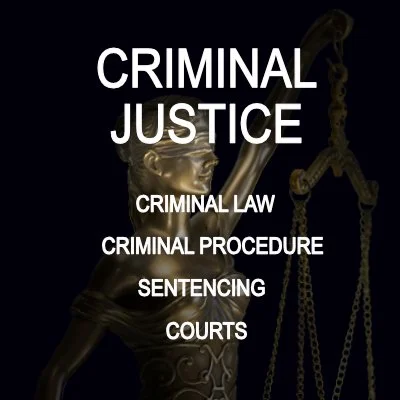By Florida International University and Loyola University Chicago
This project is a groundbreaking partnership between prosecutors and researchers to promote more effective, just, and transparent decision-making in prosecution. It is a bipartisan effort to be smart on crime, to think about new ways to maximize public safety, to enhance fairness, and to create a new system of accountability to the public. It involves four forward-thinking prosecutors in Cook County (IL), Jacksonville (FL), Milwaukee County (WI), and Tampa (FL) working with researchers at Florida International University and Loyola University Chicago to take a new look at prosecutorial performance and decision-making. This partnership is supported by the John D. and Catherine T. MacArthur Foundation. Improving prosecutorial performance and decision-making is impossible without data. Data takes center stage in the project because it tells prosecutors what problems are the biggest threats to community well-being, and it points to ways to tackle those problems. Data helps measure the overall impact of prosecutors’ work, and it alerts them that a policy or practice needs to be continued or changed. Unfortunately, most prosecutors’ offices cannot collect, analyze, and apply data to these ends. Many offices do not record the data they need. Others are missing the staff and knowledge necessary to analyze their data. Still other offices—probably most—do not have the ability and commitment to use data to guide their decisions and reforms. This project focuses on helping our partner offices and other interested jurisdictions overcome these hurdles. The project has four distinct objectives: What The Project Is About While the project targets performance in our four partner jurisdictions, it also aims to use the knowledge generated from this experiment to advance the field of prosecution nationally. There are more than 2,300 local prosecutors’ offices in the United States, but very few organizations specialize in prosecutorial research and technical assistance. Realistically, most prosecutors’ offices will not receive any direct meaningful assistance. By building sustainable data collection, performance measurement, and communication practices for the four offices, this project provides a set of blueprints that offices across the country can use to make their own internal improvements. We realize there is no one-size-fits-all approach to prosecutorial office management that will meet every office’s needs. Writing a prescription for a patient we have not examined is hard. However, the project provides a model that other offices can use to start thinking about forming local partnerships, improving data capacity, and producing metrics for assessing their own impact. The backdrop for this project is the Safety & Justice Challenge, the MacArthur Foundation initiative to reduce jail misuse and overuse as both a crucial component and a major driver of America’s over-reliance on incarceration. Unnecessary jail incarceration carries significant costs to individuals, families, communities, and society at large. These costs take their greatest toll on low-income people and communities of color. The Safety & Justice Challenge supports local leaders who are dedicated to safely reducing jail populations, improving justice systems, and ultimately strengthening their communities. To expand offices’ data and analytical capacity by assessing case management systems, making better use of existing data, and exploring options for capturing new information without creating additional burdens for prosecutors. To assist prosecutors with tracking their progress toward greater efficiency, effectiveness, and fairness using prosecutorial performance indicators at the office and unit levels (as opposed to the individual prosecutor level). To identify possible racial and ethnic disparities at various stages of case processing across offense categories, and to work with stakeholders to develop specific solutions to reduce them. To establish a practice of using data to measure monthly or quarterly performance and engage with the communities While the project targets performance in our four partner jurisdictions, it also aims to use the knowledge generated from this experiment to advance the field of prosecution nationally. There are more than 2,300 local prosecutors’ offices in the United States, but very few organizations specialize in prosecutorial research and technical assistance. Realistically, most prosecutors’ offices will not receive any direct meaningful assistance. By building sustainable data collection, performance measurement, and communication practices for the four offices, this project provides a set of blueprints that offices across the country can use to make their internal improvements. We realize there is no one-size-fits-all approach to prosecutorial office management that will meet every office’s needs. Prescribing for a patient we have not examined is hard. However, the project provides a model that other offices can use to start thinking about forming local partnerships, improving data capacity, and producing metrics for assessing their impact. The backdrop for this project is the Safety & Justice Challenge, the MacArthur Foundation initiative to reduce jail misuse and overuse as both a crucial component and a major driver of America’s over-reliance on incarceration. Unnecessary jail incarceration carries significant costs to individuals, families, communities, and society at large. These costs take their greatest toll on low-income people and communities of color. The Safety & Justice Challenge supports local leaders who are dedicated to safely reducing jail populations, improving justice systems, and ultimately strengthening their communities. This report presents findings from an assessment of racial and ethnic disparities in prosecution and sentencing in Cook County, Illinois. Multiple decision points are analyzed, including case charging, changes in charge severity from arrest to charging, disposition type, changes in charge severity from charging to conviction, and sentencing. Because the findings vary by decision points and offense categories, each finding should be examined and assessed independently
Miami; Florida International University and Chicago: Loyola University Chicago, 2019. 50p.




